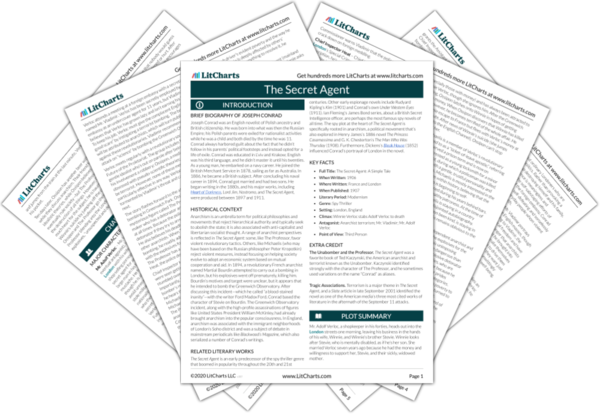Stevie’s moral instinct overlaps with the instincts of some of the revolutionists in an interesting way. Like them, he perceives that the world is structured in an unfair way that hurts vulnerable people. Unlike them, however, he expects existing institutions (like the police) to fix the disparity. When Winnie tells him that this isn’t how the world works, Stevie is disoriented further.
